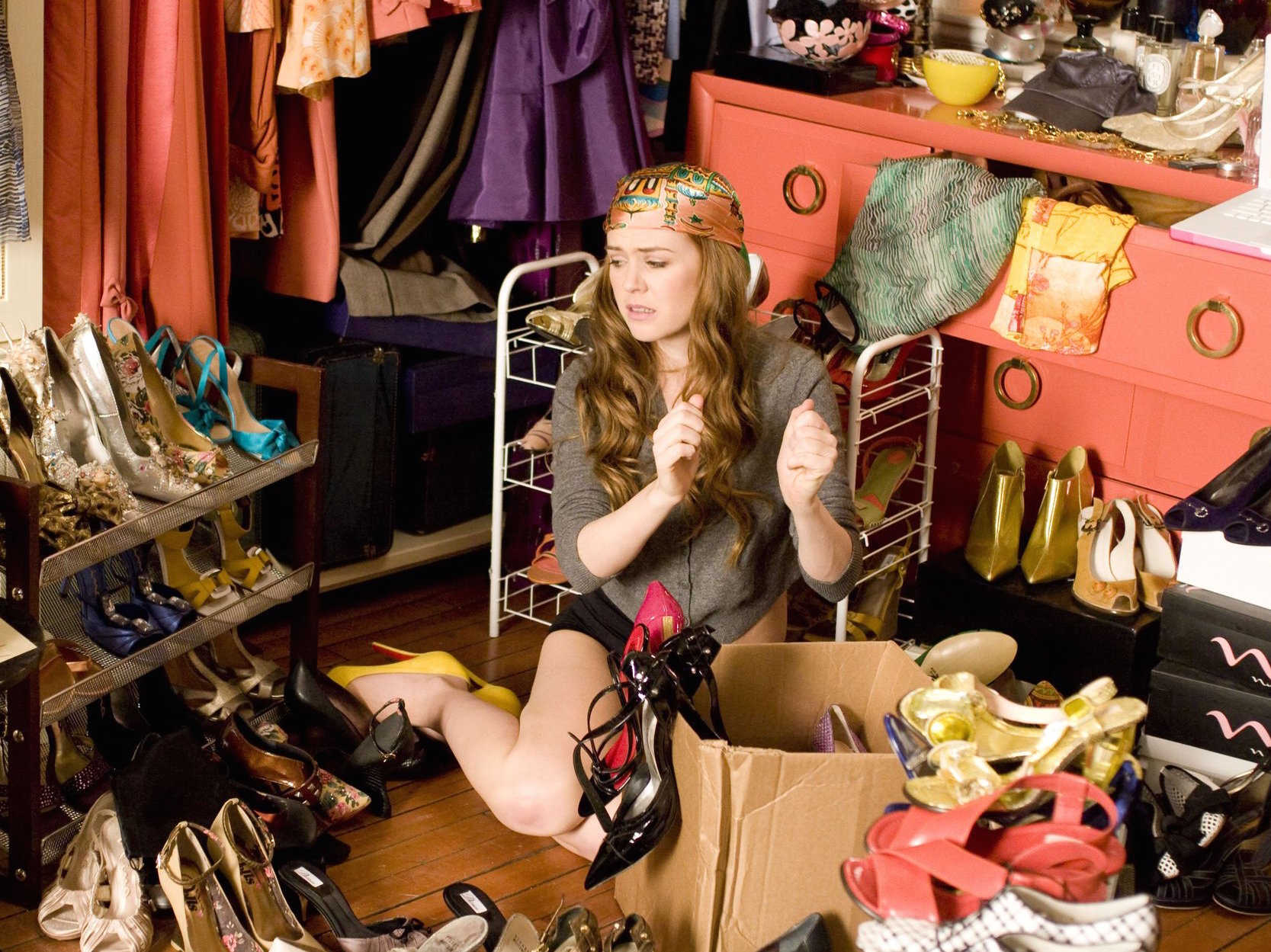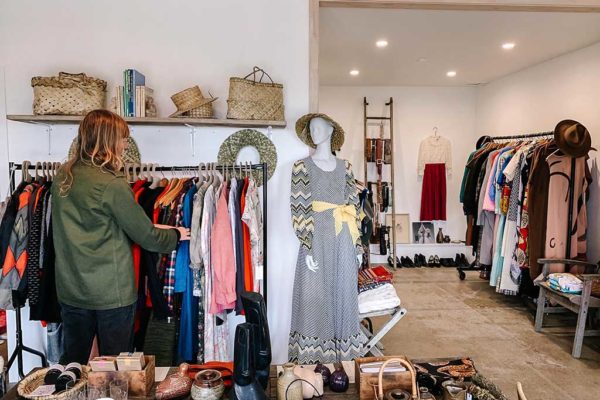How To Prepare For a Season Change Without Blowing The Bank And Your Ethical Fashion Values
Kate Hall
Spring is in the air! I can smell the sweetness of strawberries, see the sun rising early, and feel the ocean heating up (not a global warming reference FYI, but good on you for considering it).
Every change of season brings a necessity for a change in wardrobe. I don’t know about you, but I’m not prepared to wear my woolen cardigans at the beach this summer.
A change in wardrobe sounds like a recipe for a broke bank and a chaotic shopping experience.
Image via IMDB

Good news: it’s the opposite.
It’s easy to spend hundreds on a big shopping spree before a new season, thinking you’re being awesome and planning when really, you’re just blowing valuable money and time. Although you’re definitely still awesome, this is what not to do.
A seasonal wardrobe change done right can mean more money, and less time spent in chaos.
Step 1: Start preparing for the season change, a year in advance.
At the end of a season, consider if your life would have been easier, or your wardrobe more adaptable, if you had more items in your wardrobe. Create a list of things you think you’ll need next time the season rolls around.
Scout these out at second-hand shops throughout the year, only buying if you find the perfect piece. There’s no rush or stress if you don’t find it!
Step 2: Wardrobe Audit
Once the season comes around again, before buying the garments on your year-old list, carry out a wardrobe audit. Sift through the appropriate items for that season, and stack them in separate piles depending on their style, e.g., shirts in one, shorts in another.
With the list in mind, ask yourself questions, and consult the list. Do I still wear short skirts? Have I already found it at a second-hand shop? Have I been gifted something that fills the need?

Image via Mecca
Step 3: Refine your list
After hunting through your wardrobe and gathering a good idea of what you own, cut your list down even further, through a few simple tricks:
Clothes swaps
Chances are, your friend will have what you need, sitting at the back of their wardrobe gathering dust. Get the troops together, along with all their unwanted/unworn clothes, and make a day of it.
Re-style
There may be something on your list that can be achieved through a simple restyle instead of a new purchase. Spend a few hours with your wardrobe, mixing and matching items that you’ve never worn together before. A new summer dress can be avoided with a fabulous skirt and top combo, and adding a cute belt could make you fall in love with an old pair of shorts.
Upcycle
Get inventive. That pair of jeans you never wore during winter? Turn them into shorts for summer. The skirt you hate the style of, but love the fabric, enlist your local seamstress to make it into a pair of pants! Don’t stifle your creativity with the desire to buy something new. Turn your seasonal change into a fun hobby that fills your urge for new purchases.
Step 4: Give your clothes away consciously
Once you’ve gone through a wardrobe audit, swapped, upcycled, and revamped everything you possibly can, you’ll have items left which don’t have a home.
- Sell them: use the money to make more thoughtful purchases for the next season
- Donate them to charity: make sure everything is washed, cleaned, and wearable before you donate. Giving old rags to a second-hand shop isn’t helpful, and costs charities money
- Gift to friends
Step 4: Shop thoughtfully
If you still have items on your list, and you’re convinced you have no more options up your sleeve; shop consciously. Second-hand shopping is a great way to save money and use up resources that already exist, but buying ethical fashion is where we’ll see real change in the fashion industry.
We have voting power in where we put our money. When we purchase an ethically made garment, we’re voting for a fashion industry that empowers people and the planet.
Check out this article for some great ethical fashion recommendations that may tick a few things off your list.
Step 5: Rock it
Your new wardrobe is now ready for wearing. Rock it proudly!
Remember, your wardrobe will always be a work in progress. As your style constantly evolves and adapts to who you are, your wardrobe will too.
Carrying out these steps at the beginning of every season, or even twice a year can lead to a happier relationship with your wardrobe, less stress on your wallet, and a fashion future of positivity for the planet and people.



